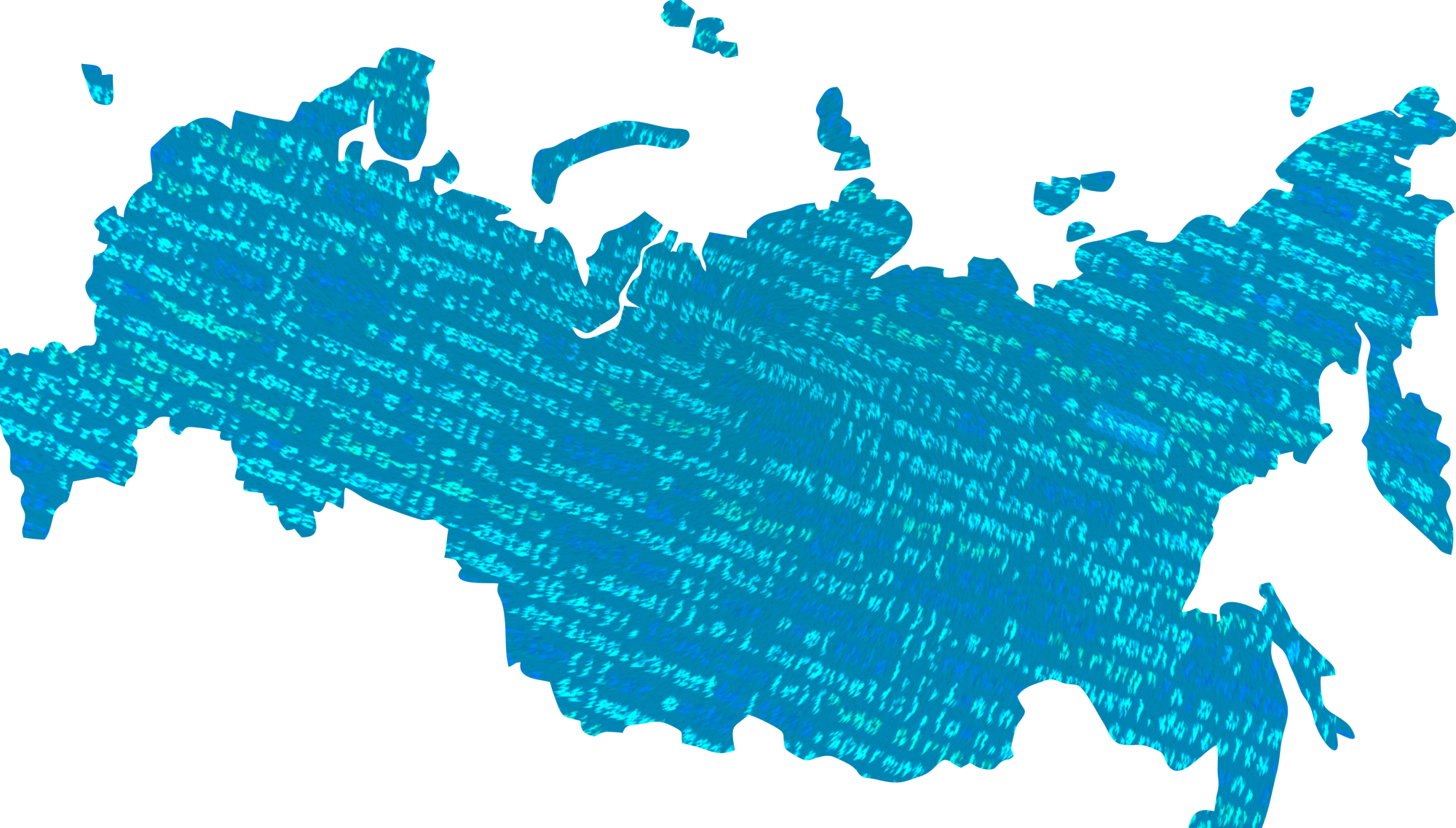The DRS team has a new member – Anna Belokur who will be working on her master thesis under the supervision of Prof. Daria Gritsenko. Anna has started her MA in Russian Studies (MARS) programme at the University of Helsinki in September 2018 after taking her bachelor’s degree in biology. Anna’s special interest is public health and she hopes to combine natural and social sciences in the examination of public health and disease in Russia. Her master thesis focuses on the digital trail of Russia’s HIV epidemic, using big data methods to examine the ways in which HIV is present in (or absent from) Russian media discourse, and if/how the relative rates of media «awareness» regarding HIV correlate to rates of reported infections and deaths in various regions.
Algorithmic Governance: In search for Context
On 9-10 May 2019, Digital Russia Studies co-founders Dr. Daria Gritsenko and Dr. Mariëlle Wijermars together with the Department of Information Technology at the University of Uppsala organised a multidisciplinary two-day workshop “Algorithms in Context – Towards a Comparative Agenda for Studies of Algorithmic Governance Across Politics, Culture, and Economy.” This workshop was the first in a series of three events scheduled for 2019-2020 and funded by Joint Committee for Nordic research councils in the Humanities and Social Sciences (NOS-HS).
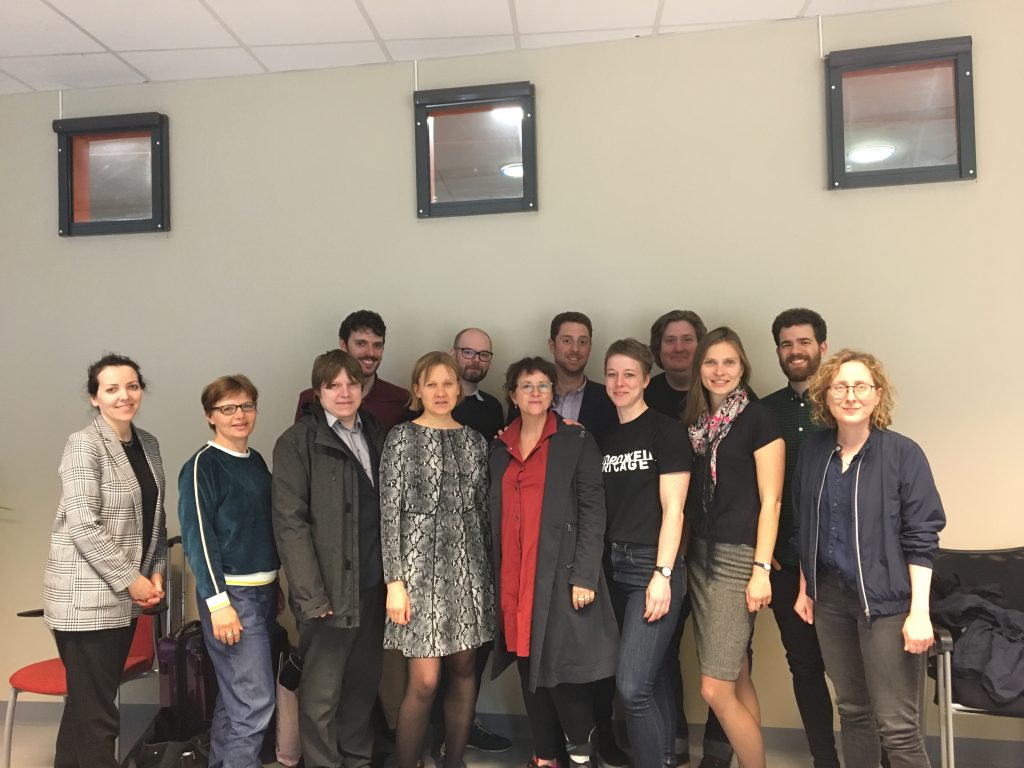
IR: Daria, could you tell us how did you come up with the idea of the workshop series?
DG: It was in late 2014, Matt Wood, one of the workshop’s core participants, and I were both fresh PhD graduates in public policy and were debating what will happen to governance in the next few years. We were somehow fascinated by the idea that governance process is increasingly being outsourced – but not to the markets and networks as it has been happening in the course of neoliberal reforms, but to technology and smart algorithms. A couple of years later we met at one of the large political science conferences and realised that the idea of algorithmic governance has picked up speed. It felt like a good time to look at the emerging phenomenon of algorithmic governance from a multidisciplinary perspective. So when Mariëlle asked me whether I would be interested to explore some idea through a series of Nordic workshops, I knew exactly what I wanted to focus upon. We already had links to the University of Tromsø through Prof. Holger Pötzsch and soon we got acquainted with Prof. Francis Lee and Dr. Mikael Laaksoharju. We had a lot of brainstorms, teleconferences, bouncing ideas, and eventually, a funded workshop proposal.
IR: Sounds breath-taking! Can you tell a bit more about the first workshop?
DG: The first workshop was called ‘Developing a framework for comparative analysis of algorithmic governance’ and it brought together thirteen scholars with background in media, law, politics, area studies and computer sciences from Finland, Germany, the Netherlands, Sweden and the UK to discuss how algorithms interact with contexts and how that could be studied.
During the first workshop, the intensive brainstorming included dividing into three discussion groups and writing a collaborative review article anonymously. In this review, we focused on such questions as: How do we define data and smartness? What are the challenges of machine learning and automated decision making? How is context created for algorithms?
In addition, we had a chance to visit Social Robotics Lab and see algorithms’ working in practice. That was very exciting – but also sobering. We are much further from the strong AI than the media and entertainment industry are picturing.
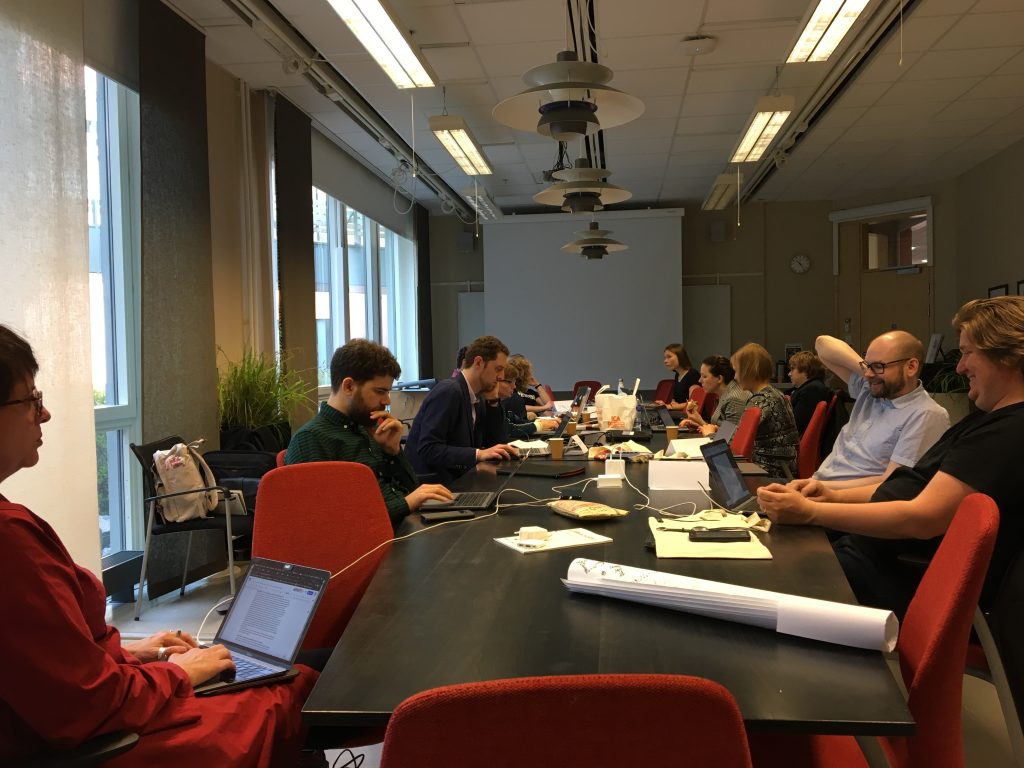
IR: What was participants’ opinion on the workshop?
DG: Generally, their expectations were met. The participants were positively surprised how efficient we were during the workshop and found ways of working well-balanced. Our programme was comprehensive, for some a bit too packed, but we really managed to develop a sense of identity as a group and to come up with a draft of a review article. Pretty neat!
IR: So, what’s next on the agenda?
DG: The next workshops are scheduled for autumn 2019 (Helsinki) and spring 2020 (Tromsø). We are all looking forward to next workshop that will be held at the University of Helsinki to start developing collaborative research focusing on specific cases.
IR: Ilona Repponen, DG: Daria Gritsenko
Open government data in Russia
Providing open data about public administration has become a trend all over the world among government bodies and local authorities. The idea is to increase transparency and to invite individuals and organisations to collaborate with the public services, and build new solutions on that data. In Russia, the executive organs have since 2012 been obliged to make their data public. What does this mean in practice? How has the order been implemented?
read the full interview with Ilona Repponen from DRS.
DRS connects with ASEEES Slavic DH group
Last week, DRS researcher Mariëlle Wijermars attended the 50th Annual Convention of the Association of Slavic, East European and Eurasian Studies (ASEEES) in Boston. In addition to presenting her own research at the conference, Mariëlle was invited to join the business meeting of the ASEEES group Digital Humanities in the Slavic Field (Slavic DH) and introduce Digital Russia Studies there. ASEEES Slavic DH aims to support the teaching, scholarship, curation, and preservation of digitally-rendered work in Slavic (as well as East European and Eurasian) Studies – objectives that we at DRS fully endorse. Our activities and aims, as well as the exciting projects we have coming up in 2019, were greeted with a lot of enthusiasm by the group and we hope to see some of them at next year’s Aleksanteri Conference in Helsinki, where an entire track will be dedicated to Digital Humanities.
UH supports ‘Strategies of Persuasion’ project with 3-year project grant
DRS co-founder Mariëlle Wijermars has been awarded a University of Helsinki three-year project grant for ‘Strategies of Persuasion: Russian Propaganda in the Algorithmic Age’ (2019-2021). The project will be launched in January at the Digital Russia Studies seminar. For more information on the project, see the projects page.
A Nordic Workshop series “Algorithms in Context” funded by NOS-HS
DRS co-founder Daria Gritsenko has been awarded a grant to lead an international workshop series “Algorithms in Context”. The project idea has been developed together with DRS researcher Mariëlle Wijermars and aims at gathering together scholars of algorithmic governance from Finland, Sweden, Norway, Denmark, Germany, Russia and the UK to discuss the notion of context in relation to the study of algorithms. While Daria and Mariëlle are behind the overall workshop design, Nordic project partners Patrick Vonderau and Holger Pötzsch bring their experience and networks into the implementation of individual workshops. Our goal is to develop methodologies for comparative study of algorithmic governance.
Project funding has been granted by the Joint Committee for Nordic research councils in the Humanities and Social Sciences (NOS-HS), an organization set up to facilitate strategic cooperation between the research councils in Denmark, Finland, Iceland, Norway and Sweden in the research fields of Humanities and Social Sciences.
The first seminar will take place in Stockholm in May 2019. For more information and updates on the project, see the projects page.
Open Data: From Messy to Neat
The October session aimed to teach Digital Russia Studies enthusiasts how new research resources – such as open government data – can be cleaned and pre-processed in an easy and efficient manner. Ilona Repponen, a research assistant at the Digital Russia Studies research group, held a master-class inspired by the work of Olga Parkhimovich and her clearspending.ru project.
In the first part of the workshop, the participants got acquainted with Russian open budget resources and learned how to use their search engines and download the data. According to Open Budget Index, Russia has succeeded in that field. Budget data on public procurement, local government, public services, subsidy agreements is available for free use in the Internet. Repponen emphasized that although published data is more or less correct it is advisable to study it critically because of a human factor behind it. Hence, mistakes can occur.
While publishing open data in mandated by the executive order of the Russian president since 2012, it remains notoriously difficult for researchers to collect and process these data. Luckily, there are tools that can help along the way. The second part of the workshop was devoted to OpenRefine, an open-source tool suitable for processing messy data that needs to be calculated. The participants tried several functions and facets for clarifying and organizing the data in different steps. Finally, based on her own research experience, Repponen explained what should be taken into consideration when assessing the results of data transformations and checking unclear items manually.

Government and citizens in the digital world
Daria, you just came back from the Internet, Policy and Politics conference in Oxford. Could you briefly tell us what it was about?
Internet, Policy and Politics (IPP) is a conference convened by the Oxford Internet Institute for the OII-edited academic journal Policy and Internet, in collaboration with the European Consortium of Political Research (ECPR) standing group on Internet and Politics. This year the topic was ‘Long Live Democracy?’, so it was about questioning the theses of democratic renewal – and democratic decay – in a digital world. Over two days, around 80 research papers were presented by scholars from all over the world, showcasing rigorous and critical investigations on the role of digital technologies in democratic processes and showing many ways in which the internet has affected democracies, both positive and negative.
That is a timely and controversial topic! What did you present at the conference?
I presented the first results from our ongoing project on the uptake of civic technologies in the Russian regions. Together with Andrey Indukaev, last spring we started wondering why, how and to which consequences various civic technologies are being adopted across Russia. It is not very well known, but in Russia many cities and municipalities enter into dialogue with their citizens using online tools. For instance in Moscow there is a blockchain-based platform called Active Citizen, where citizens can cast their votes with regard to various municipal matters, such as local speed limits, bus route design, library services, parks and recreational zones, and where voting is rewarded in the form of points that can be exchanged for services, such as museum tickets. The geography of civic technology is very wide – in Yakutsk it enables online public hearings and participatory budgeting, in Belgorod and Rostov – interactive maps with city problems co-created by the citizens, and so on. In this sense, Russian cities are not so different from their counterparts in Germany and the UK, as we discovered in the IPP conference. It was very exciting to hear that very similar projects are now being realised in, say, Göttingen or Köln. This provoked a good discussion about the democratic potential of civic technology.
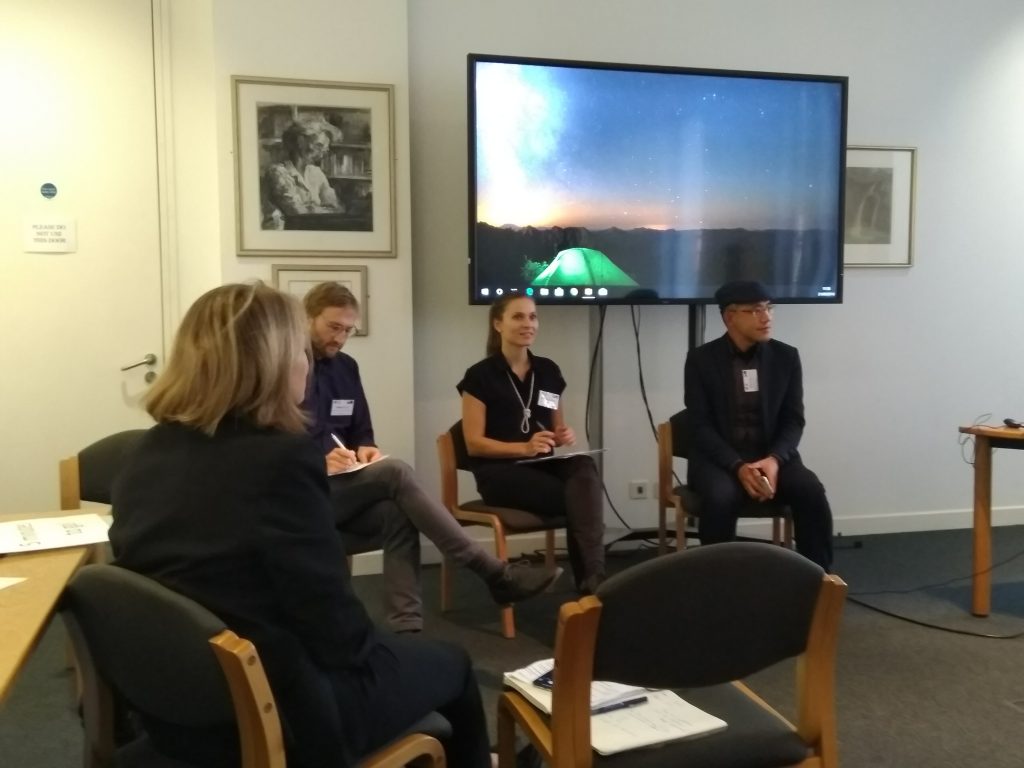
What are the main arguments of your research?
We are at the initial stage of this project, so it is too early to say what we will find. However, the IPP2018 was definitely a great place to test our hypothesis. We argue that there is no ‘democracy by design’ and that any civic technology is not deployed in a vacuum. We follow to socio-technical tradition of understanding the life of technology in society and we suggest that ideas surrounding technological development matter. The democratic potential of a civic technology instrument depends first and furthermost on the narratives that accompany its design and deployment. ‘Democracy in – democracy out’, to make it very simple.
I’d like to know more! What are the next steps in this project?
I think the IPP2018 was a great platform to test our ideas and improve the analytical model. Now we are in the phase of extensive data collection. I am sure there will be many surprises and new questions coming from the data, but we are well-equipped in DRS to handle large databases, so looking forward to discovering the patterns of civic technology adoption in the Russian regions guided by our analytical framework.
Counting propaganda and ethical conduct
The April edition of Digital Russia Studies seminar was opened by Dr. Reeta Kangas, a scholar of art history from the University of Turku. She presented A Quantitative Look at the Pravda Political Cartoons of the Great Patriotic War. A decade ago, Reeta collected all political cartoons published during the Great Patriotic War 1941-45 in the Pravda newspaper, counting 185. Her Master’s thesis based on these materials sought to quantify the use of the different themes during the three periods of war by use of crisp set categorization. Yet, today Dr. Kangas is looking for more advanced ways for quantitative analysis of political cartoons. She explores ways of applying digital humanities methods to compositional interpretation, as well as combining context, caption and code into a larger analysis using quantitative and qualitative methods. This is an exciting work in progress and seminar participants had a few suggestions for Reeta – we are looking forward to learn about the progress of this project!
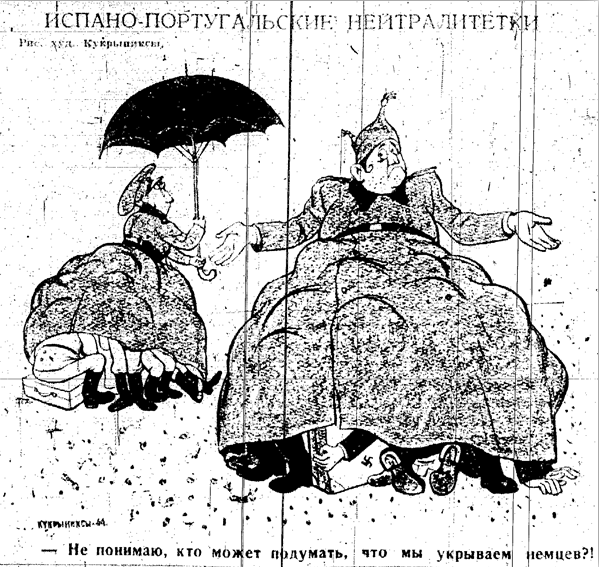
The second part of the seminar opened up some of the acute questions of research ethics for scholars working with internet forums. Teemu Oivo, a doctoral candidate from the University of Eastern Finland, has made different experiences during his work on Karelianness in Runet discussions about nationalism. While internet forums seem like ‘easy data’ – open, free, and abundant – they can best be describes as a semi-private sphere that often turns out problematic in terms of research ethics. While people may share their thoughts on the internet, they usually do not think of these posts as a potential object of someone’s research. Hence, informing the users that they have become ‘informants’ in a research project is crucial, as well as obtaining their consent, even if from a legal perspective the data is ‘open’ and freely accessible. Another issue that Teemu has been wresting with is the use of memes as research objects. Memes are fluid and the attribution of intellectual property rights is often complex – or even impossible. Also, they have a tendency to come and go. Creating and curating own web-archives maybe a good way to preserve the memes and the context in which they were captures by a researcher.
Historical Brotherhoods and Quantified Film Music
The March edition of DRS seminar featured two talks by PhD researchers from the University of Helsinki.
The first presenter, Justyna Pierzynska from Media and Communication Studies at the Department of Social Research, asked in her research why historical brotherhoods are such an effective narrative in East European politics. She uses digital materials to discover how such ‘common history’ is being produced and how it becomes popular social knowledge. Comparative analysis of four ‘historical brotherhoods’ – Polish-Georgian brotherhood, Serbian-Armenian brotherhood (Serbia), Serbian-South Ossetian brotherhood (Serbia), Serbian-South Ossetian brotherhood (Republika Srpska) – show an interesting pattern. Brotherhood ideas do not spread to become „common knowledge“ without the mediating elite element!

User-generated image, 2010
In the second half, MA Ira Österberg from Aleksanteri Institute who will be defending her PhD dissertation “What Is That Song? Aleksej Balabanov’s Brother and Rock as Film Music in Russian Cinema” on Wednesday, May 9th, 2018, presented her proposal for postdoctoral research project. The idea is to study musical strategies of Soviet cinema by operationalizing film’s use of music along various dimensions. The aim is to find out how much music is in a given film, what types of music are used, how are the music type and positioning of the music connected. Using digital (semi)automated methods, Ira plans to scale her study to uncover how these features change over time. The ultimate aim of this exciting project is the creation of the overall methodology for quantitative film music analysis!
